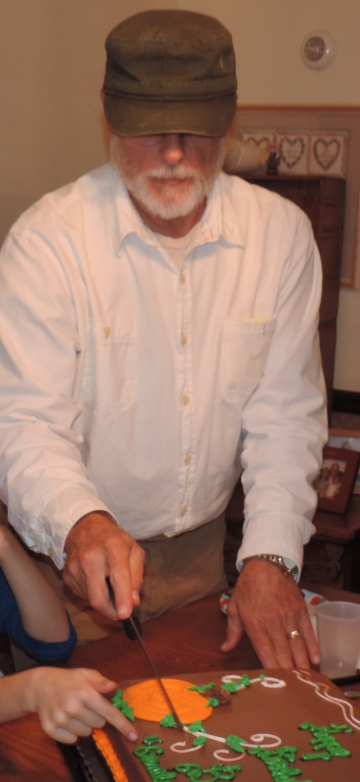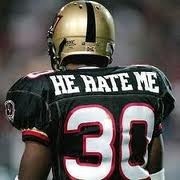This essay is going to be a little short of words compared to most on The Pontificator. Brevity will relieve friends who might read my essays to be polite or feign interest. I wish I had more readers like them, but most who read I will never meet. I don’t know what they love or hate.
I know this. If the GOP retains its lockdown on all branches of the government after Tuesday’s “election”, the Confederates will have won their Civil War. It took 150 years, but they will have won. Donald Trump is a modern Jefferson Davis — the first president of the new Confederacy.
Trump is bigger than Jefferson Davis. Like Davis, the president works for a coalition of revolutionaries who despise democracy. They support a modern version of slavery, on which they pin the heroic title of Capitalism, right?
They are eager to kill to protect it. It’s why they are rabid Second Amendment advocates; it’s why they harass and threaten liberals on-line, on the phone, in the press, in the churches, and inside state legislatures.
It’s a system where everyone works for the wealthy to manipulate and exploit ignorant people who actually believe they are going to be rich and powerful oligarchs themselves, someday. All that is required is to work hard and prepare, prepare, prepare.
Sure, that works. Ask any brick layer or steel worker. Ask an auto worker. Ask a teacher or a nurse or a restaurant busboy. It isn’t going to happen.
Get real.
The only chance working people will ever have to earn high incomes is if rich people share the wealth by paying fair wages and taxes, which is the opposite of what they decided to do when they rushed through the recent “tax cuts.”
About 90% of the cuts went to the one-percent, right? Of course, the poor can buy lottery tickets. Lottery tickets sometimes work, don’t they? Doesn’t everyone in the USA have someone in their family who has won millions in the lottery? The lottery has been going strong since the early 1970s — almost fifty years. It must be working, because more people play the lottery than ever before.
Divide hard-working folks — who after long days at work don’t have the time or energy to think things through — with any number of issues that make no sense. The classic issue is abortion, of course. It always is.
Any woman can secure an abortion. It only takes two inexpensive pills or a boyfriend who has watched a couple how-to videos on the dark web. The only political question is whether abortions are going to be legal and safe or illegal and risky.
Legality or Constitutionality makes no difference to desperate women, but it might mean that a few unfortunates will spend time in prison away from their families should they get caught. Fear of prison increases anxiety, but it won’t stop a female impregnated by a man she hates. She will abort.
It’s been this way since the beginning of history. Before the process of abortion was known, women took their unwanted babies into the mountains to be eaten by wolves and crows.
The president has promised to punish women who have abortions. Judge Kavanaugh, the drunk sex addict and party animal who terrorized Dr. Ford during an alcoholic rut, promised Senator Susan Collins that he won’t overturn Roe v. Wade. He made the promise to secure her vote.
As the president likes to say, “We’ll see what happens.”
There are so many other fabricated issues; so many “scary” people — immigrant rapists, immigrant invaders, gays and their spouses, black political candidates, Mexicans who vote, socialist doctors, Obama and his ACA, Muslim terrorists, Muslims who aren’t terrorists, native Americans who don’t live in houses or apartments who want to vote, unindicted Hillary and her co-conspirators, lying reporters, homeless people, immigrant children who must be separated from parents and confined in cages, angry mobs of Democrats, and on and so on…. The list of imagined “terrible people” who everyone must fear is as long as America itself.
It’s a white supremacist’s wet-dream — burning crosses with any number of “horrible” people duck-taped to the raging firewood. Ethnic and cultural cleansing of “evil” Americans seems to give supremacists a certain cathartic release. It’s what lynching and castrating were all about decades ago.
Read Trump supporter twitter feeds, anyone who doesn’t believe it. They will terrify the uninitiated. It’s always pics of automatic weapons, Confederate and American flags, photos of prominent progressives with target-crosses on their faces, and a little blurb about how much the tweeter hates liberals and loves Jesus and President Trump. Often a Bible verse is added for righteous measure.
People who hate gravitate toward demagogues. The USA has enough haters to elect Nazis to every office in the land. On Tuesday, those of us who have a different opinion of right and wrong are going to find out who is right and who is wrong.
Are we going down like lemmings off a cliff into the maelstrom below? Will Americans drink the Kool-Aid of a Jim Jones sociopath?
We will soon know the truth about our country — if the Russians (or the Republicans who own the voting machines) don’t manipulate the results, as some in our intelligence agencies say they have already. In Texas early voters report that some machines are flipping votes for certain candidates. It’s a bad sign of problems to come on voting day.

NSA employee Reality Winner is in prison with no access to media, reporters, phones, or computers for a reason, right? Once people lose confidence in the integrity of the electoral process, the alternative is Civil War. We did that once. The war turned into a bloody mess that destroyed a generation of Americans. It’s a war that continues to be fought.
What if a miracle happens? What if the election is fair?
What happens if suppressed voters manage to get to the polls to cast provisional ballots when necessary?
What if all votes are counted; no one tampers with the computers nor the voting machines; everyone stays in line and votes until midnight if necessary in those states where the GOP disrupts minority voting to make it as difficult as humanly possible?
What then?
What if the GOP is thrown out and the Democrats take control of the Senate and the House of Representatives? It seems like a hopeless pipe-dream, but stranger things have happened.
The president will question the accuracy of the count, of course, and a countdown to revolution will begin by alt-right fanatics who are itching for a fight. They’ve already killed a dozen Jewish people inside a Temple in Pittsburg; they’ve threatened the lives of the most influential Democrats in the country — including two presidents. Right?
Does anyone think that white supremacists are going to end their bloody rampage short of total victory or defeat? Winning is going to be as problematic as losing, unfortunately.
An added burden is that everyone who has an ounce of political sense knows that the president is working with Russian and Israeli mafias to lockdown the country. We are going to become Russia with our own Vladimir Putin if certain oligarchs get their way.
Anyone who isn’t afraid has a false confidence reminiscent of passengers on the Titanic or the Jews who waited eagerly for the Nazis to cleanse them with warm showers.
Are Americans out of their minds? This election shouldn’t be close.
How can evangelicals support the GOP? A victory by Democrats ensures that Mike Pence, a sincere Christian by all accounts, will replace a president who had no history of association with any church or group of believers until he made his convenient Faustian covenant with Jerry Falwell, Jr. and Franklin Graham.
NOTE BY EDITORIAL BOARD: On August 25, 2020 Jerry Falwell accepted a $10.5 million severance package from Liberty University to step down. Like Adam in the Garden of Eden, he blamed his wife for the sex scandals that followed him pretty much everywhere during his tenure.
We can impeach and remove our demented president. Some Democrats say Mike Pence will be worse. But sensible people must know that his hand on the nuclear button will be a safer hand, because he isn’t completely crazy like the Donald. Who can’t see it?
Is this lunacy what Americans want? Is this insanity what our brothers and sisters in arms fought and died for in all the wars we’ve won to keep freedom alive?
I don’t think so.
We’ll find out soon enough.
This election is a litmus test. Pray that all of us on both sides can survive and endure the results, which are sure to change America for good or ill.
Billy Lee


























